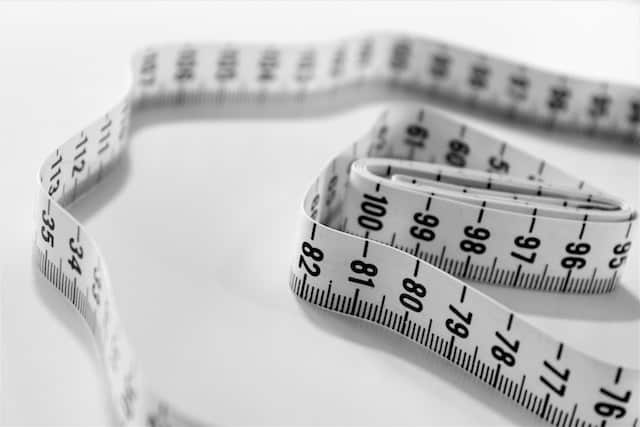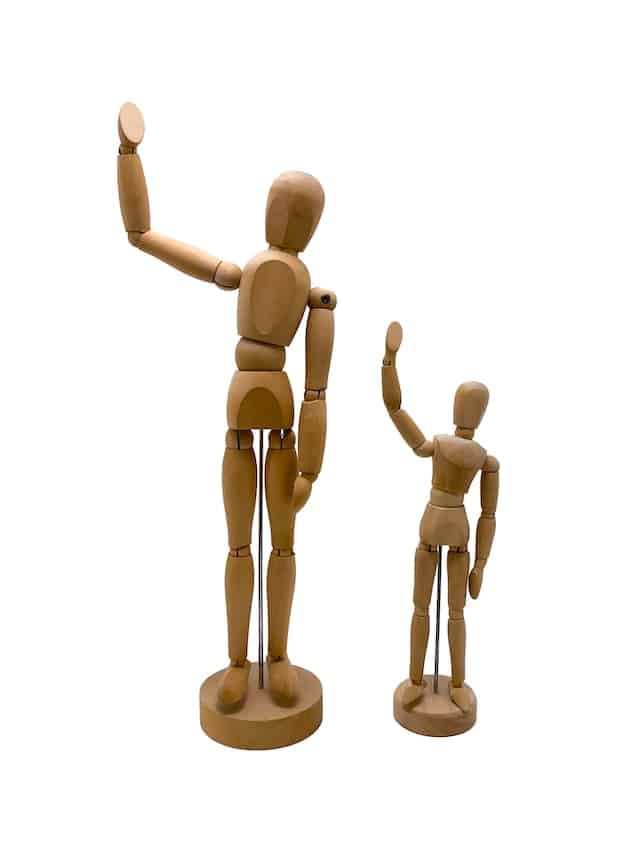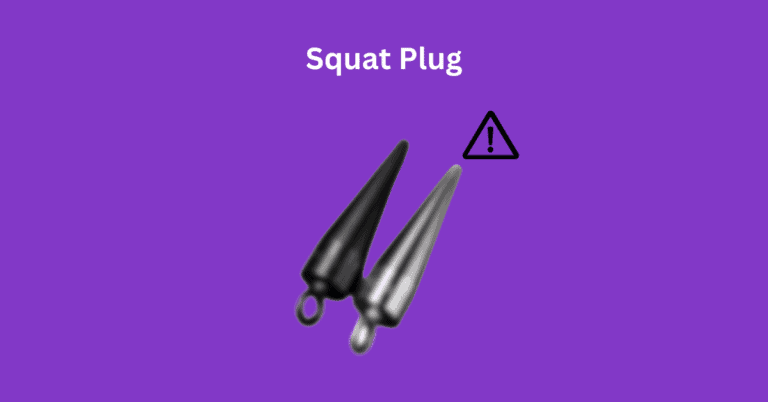Does Weight Loss Make You Look Taller? The Truth Revealed

It seems in recent times, height is often associated with attributes like attractiveness, confidence, and success, therefore many individuals desire to appear taller.
Your genes mostly determine a large percentage of your potential height and other deciding factors are your environment & nutrient intake.
One belief that arose is losing weight can grant your wish to have a taller appearance.
This post will explore the the question ‘Does weight loss make you look taller‘ by looking at weight loss and height perception, dispelling misconceptions, and providing practical insights into maximizing the perception of height.
Myth About Weight Loss And Increase Height
Before we move forward it is crucial to dispel the misconception that weight loss physically changes a person’s height
Height is determined by factors such as genetics, bone structure, and growth plates, which are responsible for skeletal growth during childhood and adolescence.
It’s sad to say but once the growth plates close, usually by the end of puberty, further height increase is unlikely. For women, their growing window is until 14-15 years old, and for men, it’s till 18-20 years old.
Weight loss does not affect these factors or stimulate new bone growth. So does this mean losing weight does nothing to your height? Well yes and no.
While it doesn’t physically change the overall height, it can improve your height perception.
Weight loss has an illusory effect where it can add a few inches to your height without making your bones longer.
When pursuing weight loss goals, it is essential to prioritize overall health and well-being rather than solely focusing on height or appearance.
Embracing a balanced approach that includes proper nutrition, regular exercise, and maintaining a positive body image is crucial.
Understanding Height Perception
Height perception is the way in which we perceive and judge the height of individuals, many things can influence this, such as body composition.
Individuals with longer legs in proportion to their torso are often perceived as taller because longer legs create a visual impression of increased height.
Furthermore, the size and shape of the head in relation to the body can affect height perception, as a smaller head may make your body look longer.
Weight loss also has an indirect impact on height perception through improvements in posture, body proportions, and muscle tone. By reducing excess weight and improving overall body composition, individuals may appear taller.
It is important to note that these effects are related to visual perception and do not involve actual changes in height.
The Relationship Between Weight Loss and Height Perception

Healthy weight loss adjusts your body in a way where it’s possible to evolve your appearance and give you a taller look.
Here are some ways how it achieves this:
Improved Posture
Excess weight can put a strain on your spine and it can become misaligned, leading to poor posture.
By gradually cutting down in weight reduces the pressure inflicted on the spine, thus making it easier to maintain a more aligned and upright posture.
Having this structure rather than slouching over will give you a boost in height appearance.
Increased Muscle Tone
Some sort of physical training should be incorporated to effectively lose weight and maintain it.
Increasing muscle tone helps achieve balanced body proportions. By targeting specific muscle groups, you can enhance the overall symmetry of your physique. This balanced proportion creates a visually pleasing aesthetic and can contribute to the perception of a taller stature.
Additionally, strengthening your core and back muscles helps improve stability in the spine, therefore promoting a better posture.
Reduce pressure
Having an excessive amount of fat around the abdominal area can cause a forward tilt of the pelvis and an exaggerated curvature of the spine.
By shedding this weight, the torso can become more streamlined and elongated, contributing to a taller appearance.
Realistic Expectations
Even though appearing taller through weight loss can sound appealing, It’s important to note that effects are limited and can vary among individuals.
By reducing excess weight and engaging in exercises that strengthen the core and back muscles, you can enhance your posture.
Depending on your body fat percentage and current posture, your height can increase from the ranges of 0-2 inches.
You should maintain realistic expectations and not anticipate tremendous outcomes.
The main advantage of losing weight does not correlate with height but with your overall health & well-being.
Shedding pounds lowers the risk of chronic diseases such as heart disease, diabetes, and certain cancers.
Weight loss achieved through healthy means, such as a balanced diet & regular exercise, can improve cholesterol levels, blood pressure, blood sugar control, and overall metabolic health.
What Affects Height?
Genetics plays a major role in deciding our potential height. However, from birth to old age there are various parts that also partake in the decision-making.
Hormones
Firstly are your hormones, they play a role in the growth and development of bones and tissues.
The most important hormone that affects your height is the growth hormone. They are produced by the pituitary gland which is located in your brain. Things such as stress and sleep can determine the release of these hormones.
Other hormones such as estrogen and testosterone also influence the growth potential of your height.
Nutrition And Diet
Proper nutrition and a balanced diet are required to provide you with correct fuel, for supporting optimal growth and development during childhood.
Several nutrients contribute to healthy bone development, this includes magnesium, vitamin K, vitamin D, phosphorus, and calcium. A diet rich in dairy products, leafy green vegetables, fish, nuts, and fortified foods helps provide these essential nutrients.
Another important nutrient is protein as they are crucial for tissue growth and repair. Adequate protein intake supports the formation of new cells and tissues.
Inadequate nutrition, particularly during childhood and adolescence, can limit bone development and stunt growth.
Furthermore, overeating leading to unhealthy weight gain can also impact your height negatively.
Environmental Factors
Being in an environment where you are exposed to toxins and pollutants can interfere with bone metabolism and disrupt hormone regulation. Furthermore, air pollution can impact your respiratory health and worsen your breathing.
An environment that causes constant emotional distress leading to chronic stress also affects your hormone regulation and overall health.
Sleep
Your body produces and releases most of the growth hormones during sleep, therefore it’s crucial to get an adequate amount of sleep to allow for optimal growth hormones to be released.
When you’re asleep this is a period of rest and rejuvenation for the body. It provides an opportunity for cellular repair, including the repair or regeneration of tissues, bones, and muscles.
This healing process is essential for healthy growth and development.
Additionally, calcium is deposited and utilized in the bone while you sleep. Getting in quality sleep promotes optimal bone mineralization, which is vital for healthy bone growth and density.
Does Gaining Weight Affect Height?
Carrying excess weight can inflict added pressure onto your spinal column. Having this constant compression can disturb the natural curve of the spine.
As a result, the spinal column can be more pronounced in the lower back, leading to a stooped or hunched posture, thus reducing your height.
The added pressure also affects your bones and joints. This stress can affect the growth plates, which are responsible for bone elongation during childhood and adolescence
Interferences with the proper functioning of growth plates can limit your bone growth.
Being overweight can disrupt your hormonal balance such as elevated levels of insulin and reduced levels of growth hormone~ hindering your normal growth process.
Importance Of Weight Loss
Maintaining a healthy weight is crucial not just for the height boost but for your overall well-being.
Firstly the most significant impact weight loss can have is the lowering the risk of chronic diseases.
Excess weight, particularly on your belly is the worst area to store fat because it can surround your internal organs. This increases your chance of developing conditions such as heart disease, type 2 diabetes, high blood pressure, and metabolic syndrome.
Secondly carrying the weight can leave you feeling lethargic and low on energy. So shedding down extra pounds will improve your energy levels and reduce the strain on the body, making everyday activities easier to perform.
Thirdly, sleep apnea is more common in individuals who are overweight. Sleep arena is where a person finds it difficult to breathe when asleep causing sleep disturbance.
Therefore, losing weight will decrease the fat stored around the upper respiratory tract~ alleviating symptoms of sleep apnea and promoting more restful sleep
Lastly, being overweight places stress on the joints which can cause them to flare up resulting in joint pains.
Losing weight will reduce the burden on the joints, improving your mobility and the overall joint health.
Tips For Maximizing The Perception Of Height

Practice Correct Posture
Losing weight can help correct out your posture, however you need to practice some cues to get the right alignments.
Here are some key elements for having good posture:
Head Alignment: Try to keep your head aligned with the spine, neither tilted forward nor backward.
Shoulders: Slightly roll your shoulders back and down. Avoid hunching or rounding the shoulders forward.
Abdomen: Get your core engaged by pulling in your belly button towards your back.
Pelvis: Avoid tilting the pelvis forward or backward, it should remain neutral. The position of the hips should also be at a position where it doesn’t disturb the natural curves of the spine.
Weight Distribution: When standing, your body weight should be evenly distributed between both feet. While sitting, the weight should be evenly distributed on both hips.
Foot Placement: Keep your feet hip-width apart and parallel to each other, this will help you support your body.
Wear Fitted Clothing
Fitted clothes create a clear vertical line along your body. In which the lines draw the eyes upwards and give the impression of length.
This effect is especially noticeable when wearing clothing with vertical stripes, which further enhance the visual elongation of your body.
Loose & baggy clothes add bulk which can shorten your body, thus minimize loose materials to maintain a sleeker appearance allowing for a taller height perception.
Accessories
This might be surprising but accessories can change your height perception as well by drawing attention upward and creating visual vertical lines.
Wearing long necklaces that hang below the neckline can create a vertical line thus giving the illusion of a longer torso.
The same goes with wearing a scarf, if worn in a vertical manner it can add length to your outfit. Just letting the scarf hang off your neck will form long vertical lines along your body making you appear taller.
FAQ
Is It Possible To Grow After The Age Of 18?
For girls, their growth potential is till the age of 14-15. Whereas for boys, it’s possible to still grow after the age of 18 as the growth window typically close after 20 years old.
Does Being Overweight Decrease My Height?
Being overweight doesn’t physically decrease your height, but what it does is it alters your body structure and can cause spinal curvature.
This worsens your posture by promoting a hunched-over position, which in turn will make you appear shorter.
Conclusion
Many individuals desire to appear taller for various reasons, this can be driven by just personal preferences or due to cultural ideals.
Weight loss can help with this quest by not physically increasing your height but by impacting your height perception.
However, the results can be minimal and can even go unnoticed by some people, so it’s essential to set realistic expectations.
Remember, height is just one attribute of oneself, it does not dictate your whole personal image. Therefore you should prioritize your health and well-being instead through the method of weight loss.


